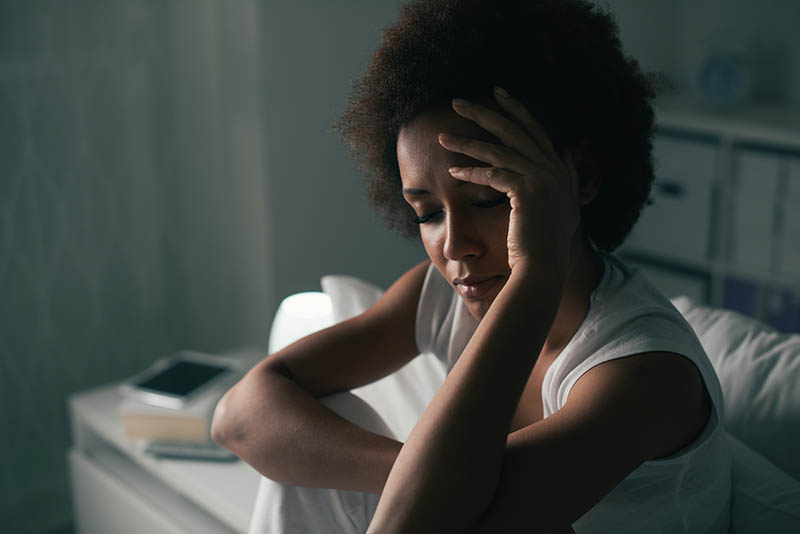When you are feeling pain or pressure in your head, it can sometimes be difficult to tell whether you are experiencing a headache or a migraine. While some people use both terms interchangeably, they are actually two different issues, and knowing the difference can be important when it comes to faster relief and better treatments.
What Is a Headache?
A headache is an uncomfortable pain in your head that can cause pressure or aching. They can last anywhere between 30 minutes to a week and can occur on both sides of your head. The pain can range from mild to severe and happen on the forehead, temples, and back of the neck.
Tension headaches are the most common, caused by muscle strain, stress, and anxiety. But there are other types of headaches as well, including:
- Cluster headaches – severely painful headaches that occur on one side of the head. These come in cycles, or clusters, so there will be a time when the headache is painful and then a pain-free period.
- Sinus headaches – headaches that happen with other sinus infection symptoms like stuffy nose, cough, fever, and facial pressure.
- Thunderclap headaches – a severe headache that develops in under a minute. It could be the sign of a serious medical condition, so it’s important to call 911 if this type of headache occurs.
Headaches can be caused by many things, but don’t usually happen because of a life-threatening or serious illness. Many are caused by simple lifestyle factors including:
- Stress
- Skipped meals
- Drinking too much alcohol (particularly red wine)
- Consuming nicotine
- Eating certain foods
- Changes in sleep or lack of sleep
- Having poor posture
At-home Treatments for Headaches
Most headaches are caused by tension and stress and can be treated with over-the-counter medicine or stress relieving techniques. These can include:
- Taking anti-inflammatory medicines such as ibuprofen, aspirin, or acetaminophen
- Doing relaxation exercises
- Stretching your neck
- Getting a massage
- Using a warm compress or taking a warm shower
- Meditating
Headaches vs. Migraines
While headaches can be considered mild or severe, they are often just associated with head pain. Migraines are very intense and severe and often occur with other symptoms, such as:
- Sensitivity to light and sound
- Pain behind one eye or ear
- Pain in the temples
- Seeing spots or flashing lights
- Losing vision temporarily
- Nausea
- Vomiting
Migraine pain can sometimes be so severe that people seek care in the emergency room. They usually only affect one side of the head and cause an intense throbbing pain that makes it difficult to perform daily tasks.
People who experience migraines often report triggers that they associate with them. These may include:
- Emotional anxiety
- Hormonal changes
- Taking contraceptives
- Consuming alcohol
- Going through menopause
- Eating certain foods that are known to cause you headaches
Treatments for Migraines
When treating migraines, trying to prevent them is often the best course of action. This may be things like:
- Taking prescription medications, like antidepressants or blood-pressure medication
- Trying to reduce stress
- Making changes to your diet to eliminate triggering foods and lower your alcohol consumption or caffeine intake
When preventative measures don’t keep the migraines away, there are also medications you can take, like over-the-counter pain medicines or anti-nausea medicines. If those are not strong enough, a doctor may also be able to prescribe medicines to reduce a migraine quickly. However, it’s important to be careful with these medications, because if you take them more than 10 days out of the month, they could result in what is called a “rebound headache,” which means the headaches will get worse instead of better.
When to See Your Doctor About Headaches
Headaches and migraines are unfortunately very common, but with simple treatments they can be manageable. If you start having a fever, sweating, seeing changes in your vision, or start experiencing weight loss because of headaches, it might be time to see a doctor.
Other reasons to contact your doctor about headaches are:
- If you are having headaches that wake you up from sleep
- If you have had headaches in the past, but they are changing in how often they occur and how severe they are
- If you are older than 50 and start experiencing new headaches
- If you have a severe headache that develops in less than a minute (This could be the sign of a serious health issue and will need to be treated immediately.)
If you are experiencing headaches that are affecting your daily life, or if you think you are having migraine symptoms, contact Jai Medical Systems today to set up an appointment.
 Did you know that your IE browser is outdated?
Did you know that your IE browser is outdated?






